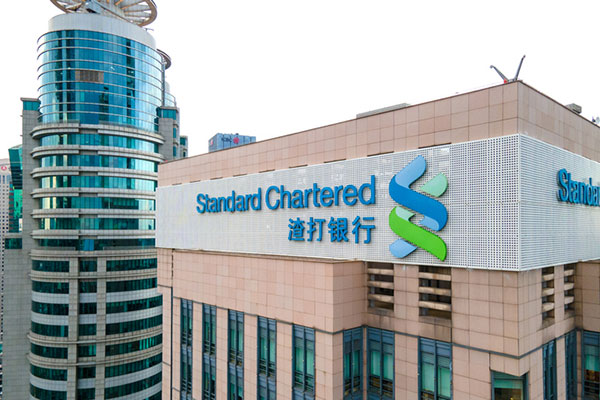Standard Chartered ends bank reporting season with a whimper
But, Asia opportunities mean investors still see the firm as a ‘buy’.
25th February 2021 09:50
by Richard Hunter from interactive investor
But, Asia opportunities mean investors still see the firm as a ‘buy’.

Standard Chartered (LSE:STAN) has brought the curtain down on the UK banks’ reporting season with something of a whimper rather than a bang.
The pandemic effect and political tension in Hong Kong, let alone the brittle relationship between China and the US, have halted progress and threaten to underline Standard’s recent status as a ‘jam tomorrow’ stock.
The results themselves echo what has been seen across the sector during this reporting season. A tentative return to the payment of dividends, significant impairments resulting from the Covid-19 disruption, crimped margins given basement-level interest rates, but strongly capitalised balance sheets are all major themes.
For Standard, the hope must be that the Asia region, and China in particular, continue to be the first areas on the road to Covid-19 recovery.
In the meantime, the bank is ploughing on with an ambitious transformation programme, including a focus on the affluent market alongside a switch towards a digital offering which could mean entry to the mass retail market.
- Pandemic batters HSBC, but bank stays stable
- ii view: Lloyds Bank restarts the dividend
- Investors want bank dividends restored this year
The figures are fair-to-middling in comparison to its peers, reflected in a credit impairment figure of $2.3 billion (£1.62 billion), a cost/income ratio of 66.4% and a return on equity of just 3%, with a target of 7% by 2023.
The pre-tax profit figure remains in the black, but has fallen by 57%, while underlying earnings per share have more than halved.
More positively, the balance sheet remains robust, with the capital cushion at the perfectly respectable level of 14.4% and a liquidity coverage ratio of 143%.
Although limited, the return to a dividend payment comes with the addition of a share buyback programme of $254 million. Alongside an upbeat outlook statement, the bank is highlighting the positives, but the initial share price reaction has fallen foul of some profit-taking given the bank’s recent share price strength.
As with its peers, Standard has seen the benefit of the vaccine announcement in November but not to the extent of rescuing its yearly performance.
The shares have risen 33% in the last three months but remain down by 16% over the last year, which compares to a decline of 5% for the wider FTSE 100.
Despite the inevitable difficulties ahead economically and politically, investors are looking through to the prospects which a strong Asian focus might bring, with the market consensus of the shares still resolute at a ‘buy’.
These articles are provided for information purposes only. Occasionally, an opinion about whether to buy or sell a specific investment may be provided by third parties. The content is not intended to be a personal recommendation to buy or sell any financial instrument or product, or to adopt any investment strategy as it is not provided based on an assessment of your investing knowledge and experience, your financial situation or your investment objectives. The value of your investments, and the income derived from them, may go down as well as up. You may not get back all the money that you invest. The investments referred to in this article may not be suitable for all investors, and if in doubt, an investor should seek advice from a qualified investment adviser.
Full performance can be found on the company or index summary page on the interactive investor website. Simply click on the company's or index name highlighted in the article.